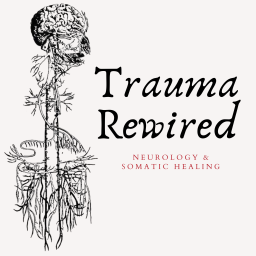
by Thomas Zimmerman
Helping therapists work more effectively with complex trauma. Thomas Zimmerman, Ms.Ed., LPCC, offers EMDR Foundational Training in Cleveland, Ohio, and online throughout the United States. We can also train your whole agency. See: http://EMDRCleveland.com
Language
🇺🇲
Publishing Since
5/1/2023
Email Addresses
1 available
Phone Numbers
0 available

February 19, 2025
<p>Helping the Predictive Brain Update Bad Memories</p><p>Turns out, the story that we’ve been telling ourselves about the neurobiology of trauma doesn’t make sense anymore based on what we have learned the past twenty-five years about brain evolution, function, structure, memory reconsolidation, neuroplasticity, and the predictive brain. How we understand perception of our external world and internal worlds and has changed profoundly. There is growing consensus around the core idea that our nervous system is predicting and constructing our reality for us. And while this has some really disturbing implications related to things like our felt sense of free will and our illusion of objective observation, it has potentially remarkable implications for how humans might heal. Predictive processing might be able to do what no other theory of mind has: explain how we construct reality and possibly even our own selves. Central to this understanding is the role that prediction error plays at all levels of abstraction. And for the purposes of what I’m talking about now, the vast majority of predictions and prediction errors occur outside of direct consciousness and awareness. Prediction errors are central to perception, memory formation, learning, movement of all types, and every experience imaginable. We can think of consciousness, awareness, experience, and our own identities as floating on top of our predictive system the way a foam mat floats in a pool.</p>

January 3, 2025
<p>When Complex Clients Insist on Doing EMDR Processing Immediately</p> <p><br /></p> <p>Clients often urgently need to heal. Their lives are probably unmanageable and they may have significant relational, occupational, or functional stressors that need urgent attention. We can align with that urgency. However, urgency is not a substitute for preparation. If you have a complexly traumatized nervous system, your recovery is not going to be brief and the needed preparation probably isn’t going to be short. Your relief of the current stressors may not come in the short term, when those stressors are the direct result of your allostatic load.</p> <p>EMDR therapy is different than our regular coping and survival strategies. It is not culturally intuitive. It asks you to sit in the states that you may have spent much of your life organizing against or put a needle in your arm to avoid. It requires a window of tolerance. EMDR therapy starts a fire in your nervous system and when that fire starts to get better, I encourage you to put more logs on it. You have to have the capacity to be set on fire, but not consumed by it. To do this work safely with complex trauma, EMDR typically requires careful preparation and execution. Client urgency replaces none of that need for preparation and care in execution.</p> <p>I have told clients that they can fire me, but I’m not doing EMDR reprocessing with them if they clearly are not prepared to do the core things that EMDR therapy requires. That isn’t going to go well for them and the consequences of that would be on me. Because I knew better. I’m happy to do some parts work or some Flash with clients who are prepared to work in those ways, but I’m just not going to do EMDR therapy because of the client’s insistency and urgency when I can clearly see that is a horrible idea.</p> <p><br /></p> <p><br /></p> <p><br /></p>

January 1, 2025
<p>Full text of this podcast is at the EMDR Podcast and EMDR365.com</p>

Jen Savage, Melissa Benintendi, and Bridger Falkenstien

EMDR International Association (EMDRIA)

Tracy Lynch

Kina Penelope

Laura Reagan, LCSW-C

Jennifer Wallace & Elisabeth Kristof

Tammy Sollenberger

Clearly Clinical

Debbie Sorensen, Jill Stoddard, Yael Schonbrun, Michael Herold & Emily Edlynn

10% Happier

Rotem Brayer

Glennon Doyle and Audacy

Kambria Evans, The Teaching & Learning EMDR Consultant

Esther Perel Global Media

theleadingedgeineft
Pod Engine is not affiliated with, endorsed by, or officially connected with any of the podcasts displayed on this platform. We operate independently as a podcast discovery and analytics service.
All podcast artwork, thumbnails, and content displayed on this page are the property of their respective owners and are protected by applicable copyright laws. This includes, but is not limited to, podcast cover art, episode artwork, show descriptions, episode titles, transcripts, audio snippets, and any other content originating from the podcast creators or their licensors.
We display this content under fair use principles and/or implied license for the purpose of podcast discovery, information, and commentary. We make no claim of ownership over any podcast content, artwork, or related materials shown on this platform. All trademarks, service marks, and trade names are the property of their respective owners.
While we strive to ensure all content usage is properly authorized, if you are a rights holder and believe your content is being used inappropriately or without proper authorization, please contact us immediately at [email protected] for prompt review and appropriate action, which may include content removal or proper attribution.
By accessing and using this platform, you acknowledge and agree to respect all applicable copyright laws and intellectual property rights of content owners. Any unauthorized reproduction, distribution, or commercial use of the content displayed on this platform is strictly prohibited.